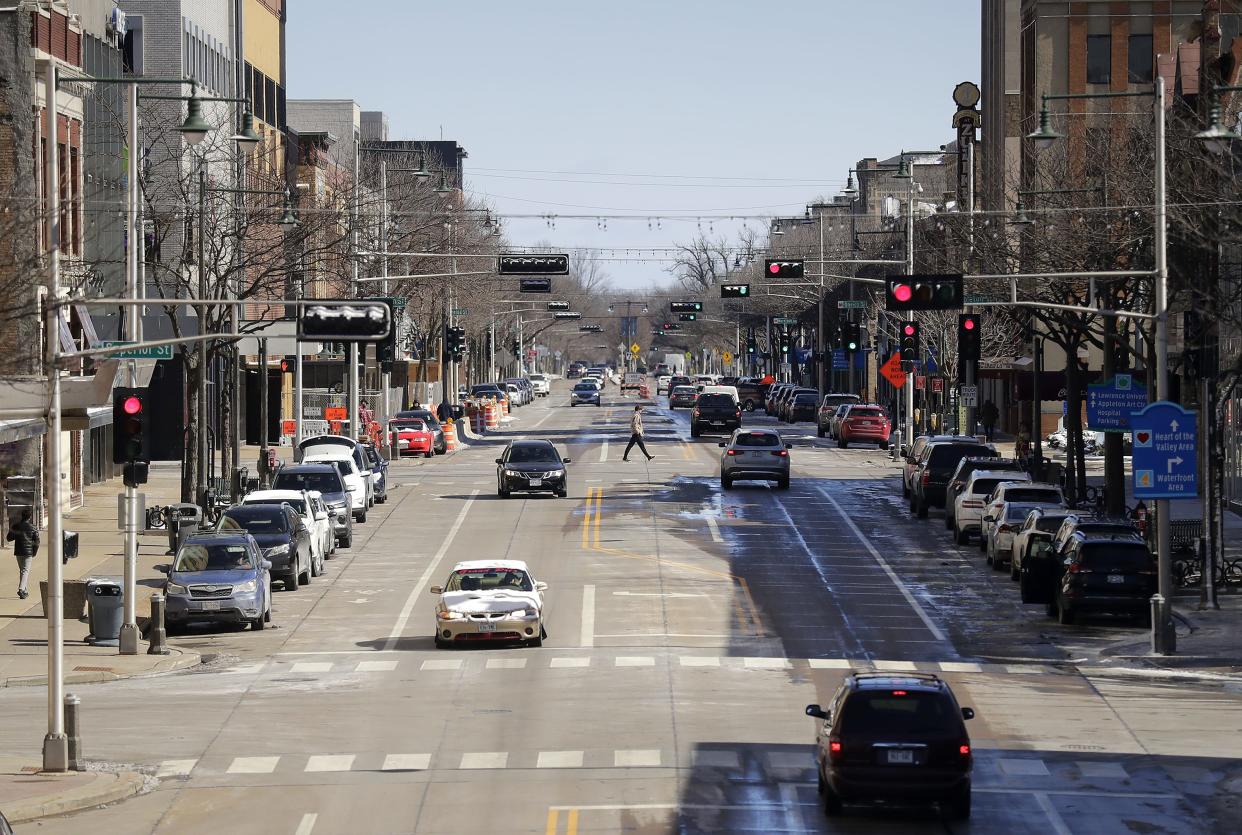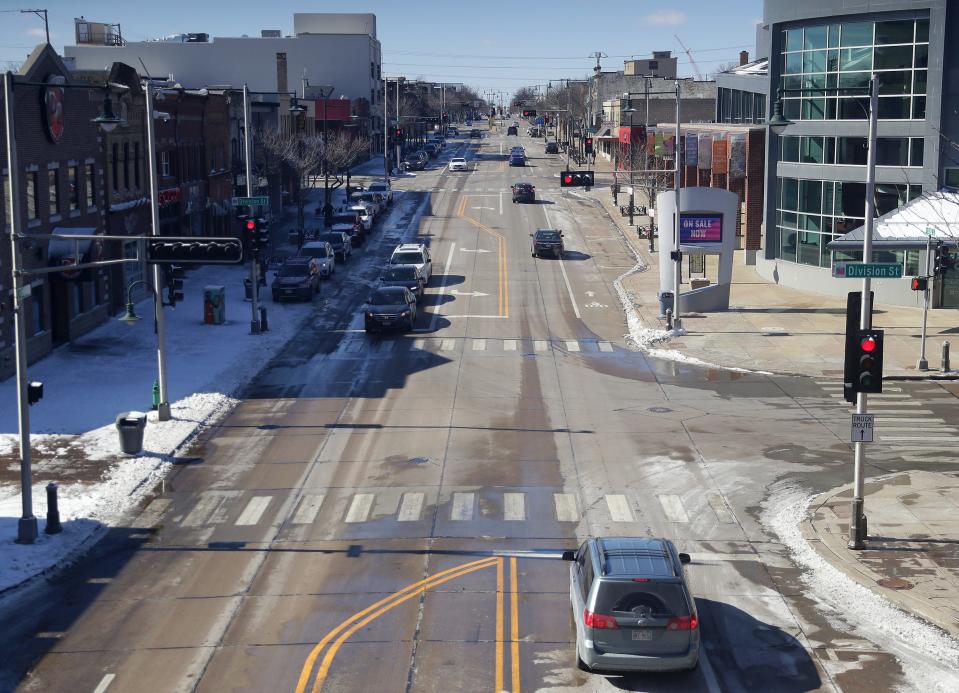Appleton's College Avenue road diet results in fewer crashes, lower speeds

APPLETON — The downtown College Avenue lane reconfiguration has resulted in a 48% decrease in crashes, fewer motorists traveling at high speeds and a reduction in noise complaints.
Though city officials cautioned the findings are preliminary, covering only the first five months of an 18-month pilot study, the data points are encouraging.
"The results of this project, from my opinion, are much better than I expected," Common Council member Vered Meltzer said. "I expected it to go well, and I think that it's gone even better than I expected it could."
"I don't know how we cannot be impressed by the negative 48% on accidents," council member Kristin Alfheim said. "That's a beautiful thing."
Meltzer and Alfheim praised city staff and Appleton Downtown Inc. for their work on the reconfiguration, which changed College Avenue from a four-lane street to a three-lane street — known as a road diet — in an effort to improve safety and reduce traffic speeds and noise.
"I think that this is a really big thing for us to celebrate together as a community," Meltzer said of the early success.
More: Appleton considers measures to improve safety in wake of fatal shootings
What has changed with the pilot project?
The road diet affects College Avenue between Richmond Street/Memorial Drive and Drew Street.
Previously, that stretch had two lanes of travel in each direction, plus on-street parking on each side.
With the road diet, the street has one lane of travel in each direction and a center left-turn lane at each intersection between State Street and Drew. It also has a bicycle lane in each direction. The on-street parking remains.
The city budgeted $130,000 for the conversion. It involved repainting the lane markings and making adjustments to traffic signals.
More: Downtown College Avenue lacks pedestrian push buttons. Here's why that is
What does the data show after five months?
Between August and December, the number of reportable crashes decreased 48%.
Appleton city traffic engineer Eric Lom said the decline is exciting but not surprising.
"The data that we had gotten from other communities is that we should expect somewhere between a 25% and a 50% reduction in crashes," Lom told the Municipal Services Committee. "So far, we're on the good end of that."
The 85th percentile speed — the speed that 85% of drivers will travel at or below — was 30 mph for College Avenue. That's about 3 mph slower than comparable streets in Appleton.
In addition, the percentage of motorists driving exceptionally fast — 10 or more mph over the speed limit — was 1.7%. That's nearly four times lower than the average for comparable streets in Appleton.

No data was presented regarding the anticipated reduction in noise, but Alfheim shared stories of wait staff on College Avenue who noticed an improvement.
Police Chief Polly Olson said she has asked the Health Department to conduct random sound checks as the pilot study progresses.
"Generally speaking I can say, at least from the Police Department standpoint, we seem to be getting less complaints related to traffic noise than we had previous to this," Olson said.
Jennifer Stephany, executive director of Appleton Downtown Inc., said the feedback from businesses aligns with the city's findings.
Has traffic congestion increased with the road diet?
Before the pilot study, traffic engineers predicted the reduction from four lanes to three lanes would increase travel times through the downtown during the morning (6 a.m. to 8:30 a.m.) and afternoon (3 p.m. to 6:30 p.m.) rush hours.
For westbound traffic, the data thus far showed no significant increase in travel times during the morning or afternoon rush hours and yielded a 15- to 20-second reduction in travel times between 11 a.m. and 3 p.m.
For eastbound traffic, the data showed a 15- to 30-second increase in travel times between 4 p.m. and 7 p.m. There were no significant differences at other times.
"In the areas where we expected to see problems," Lom said, "the problems aren't nearly as bad as we expected."
Lom said some motorists are bypassing downtown. That was anticipated.
What happens next in the process?
City staff members will continue to collect data for comparison as the pilot study progresses.
The next status report will come in August and will included traffic counts.
At the conclusion of the 18-month study, the council will decide whether to make to the road diet permanent.
Contact Duke Behnke at 920-993-7176 or [email protected]. Follow him on Twitter at @DukeBehnke.
This article originally appeared on Appleton Post-Crescent: Appleton's College Avenue road diet decreases crashes by 48%
